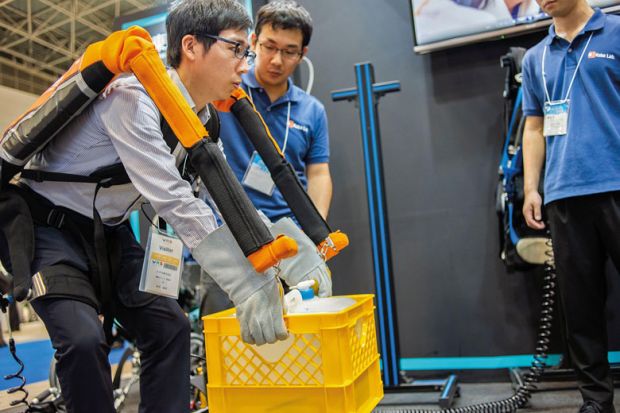Automating routine tasks using artificial intelligence will likely only increase the administrative burden on academics instead of freeing up time for more critical thinking, researchers have warned.
Scholars working in UK universities were polled anonymously for a study, published in Postdigital Science and Education, on their current and predicted future use of new technologies such as ChatGPT.
The paper says that just over 50 per cent of the 284 academics who answered the survey said they used generative AI tools in their work already, with 48 per cent saying they did not.
A higher percentage – 72 per cent – agreed these tools were already changing how they worked and 83 per cent anticipated using them more in future.
Asked about the potential uses of AI, respondents listed various ways it might help them to save time, such as providing help in conceiving and starting research and writing projects, formulating teaching plans, supporting students and professional development.
Campus resource: 25 ways to use generative AI to support administrative tasks
But the risk that the technology brings is that the space it frees up is filled with more administrative tasks, warns the paper, written by Richard Watermeyer, professor of higher education at the University of Bristol, Lawrie Phipps, professor of digital education and leadership at Keele University, Donna Lanclos, senior research fellow at Munster Technological University, and Cathryn Knight, senior lecturer in the psychology of education at Bristol.
“While those selling GAI [generative AI] claim that it has the potential to solve the problem of academics having ‘no time to think’…our survey reveals how it further contracts academics’ engagement with critical thinking and contemplative labour,” the paper concludes.
Professor Watermeyer said that some respondents identified a risk that university management see time being saved on routine tasks and say, “Let’s fill up that time by finding more for you to do.”
“It does have labour-saving potential, but people also described its role as a work accelerator,” Professor Watermeyer added. “It was not a decongestant, but a driver of further work intensification. The academic reflex is for time to be filled up with more administrative obligations. People were talking about working faster, not a return to slow scholarship.”
Another potential scenario was that the rise of technology “also causes a violent awakening”, said Professor Watermeyer, and forced academics to reject the level of administrative burden they were subjected to.
“We are seeing large numbers of people leaving because it is not seen as a sustainable career. Maybe this is the threshold moment; this is the point we say this is no longer tolerable. This is going to take us deeper down a path of no return and we’ve got to say no, that’s enough.”




